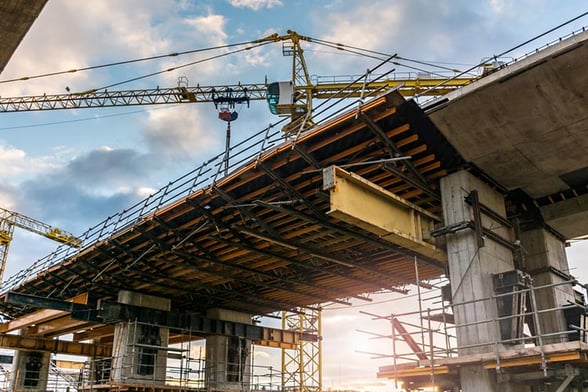
Infrastructure investments are a type of real estate investing that many people are not completely aware of. Every day, you are surrounded by properties that fall under the infrastructure heading: Bridges, highways, roads, energy sources, sewer systems, cellphone towers, and other structures that make life possible in your community are considered infrastructure. Investing in infrastructure may also be a tool for investors who want to further diversify their portfolios while also seeking to increase their own net worth.
Ways to Invest in Infrastructure
Infrastructure companies and projects often rely on investments to fund the projects. Generally, there are two types of investors who can take advantage of these opportunities: institutional investors and retail investors. Institutional investors are large companies who can buy up a majority of shares at a discounted price. Retail investors, which is another term for individual investors, purchase a smaller portion of the shares.
If you’re just getting started in infrastructure investing, you will be doing so as a retail investor. You can find publicly traded infrastructure companies and purchase shares in the same way that you would go about investing in any publicly traded entity.
Pros and Cons of Infrastructure Investments
As is always the case with investing, there are pros and cons associated with any investment class. Understanding the potential benefits of investing in infrastructure can help you decide if there is room for these options in your portfolio.
Pros
One of the goals of investing in infrastructure is that they seek to provide steady cash flow for investors. The reasoning behind the potential stability of infrastructure investing is twofold. First of all, people will always need infrastructure, as it is what makes the world maintain its operations. Secondly, infrastructure investments usually include a regulated revenue model that the company agrees to by contract.
The stability associated with infrastructure may also help these options avoid the cyclical nature of most other investments. If you purchase a single-family home, you’re at the mercy of the real estate market in the area, which is usually cyclical. That’s not the case when investing in roads, bridges, cellphone towers, and other pieces of infrastructure which are always in use.
Cons
Infrastructure investments are subject to ESG risk. ESG, which stands for environment, social, and governance, is a crucial part of infrastructure. For instance, if a massive highway is built through the middle of an existing community, it may disrupt the social norm of the area. There are also environmental hazards that have to be considered when building new infrastructure.
Additionally, there is a political aspect to be considered. During elections, you’ll hear candidates talk about their plans for infrastructure. If a winning candidate doesn’t put an emphasis on infrastructure, the viability of these investments may be impacted.
As is always the case when investing, it’s important that you take an informed approach before you put your money into any asset. In addition to the pros and cons that we’ve already discussed, you’ll need to consider your current financial standing and your personal investment goals before committing to any type of investment.
This material is for general information and educational purposes only. Information is based on data gathered from what we believe are reliable sources. It is not guaranteed as to accuracy, does not purport to be complete and is not intended to be used as a primary basis for investment decisions. It should also not be construed as advice meeting the particular investment needs of any investor. Realized does not provide tax or legal advice. This material is not a substitute for seeking the advice of a qualified professional for your individual situation. Diversification does not guarantee a profit or protect against a loss in a declining market. It is a method used to help manage investment risk. The income stream and depreciation schedule for any investment property may affect the property owner’s income bracket and/or tax status. An unfavorable tax ruling may cancel deferral of capital gains and result in immediate tax liabilities. All real estate investments have the potential to lose value during the life of the investment. All financed real estate investments have the potential for foreclosure. Cash flow or income are not guaranteed.



